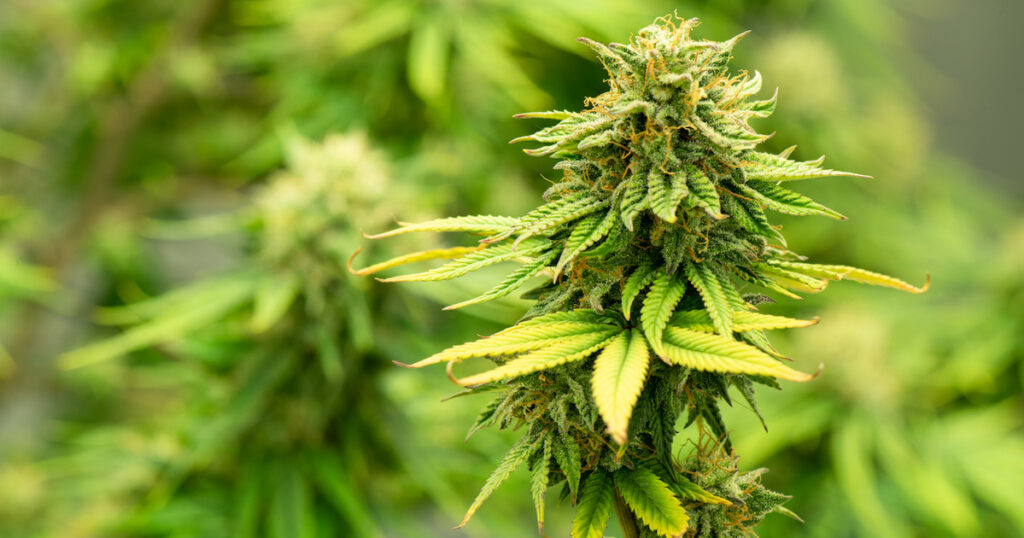LegitScript’s Associate General Counsel, Gerard Olson, takes a deep dive into the regulatory landscape of cannabis, marijuana, and CBD. Read more to understand the regulatory landscape of these products, recent stances the FDA has taken, and what problematic products we’re finding online. Or, watch the full webinar by clicking the button below.
Let’s Define the Difference Between Cannabis, Marijuana, Hemp, and CBD
You’ve heard many terms to describe it — cannabis, marihuana, marijuana and many more. So what’s the difference between the descriptors?
Cannabis is short for Cannabis sativa, Cannabis indica, and Cannabis ruderalis — all three are included in this plant family. Cannabis produces more than 540 chemical substances, and the term is often used to describe all products derived from the plant.
Marijuana is a type of cannabis, and the Drug Enforcement Administration describes it as a mind-altering drug in which the flowers, stems, seeds, and leaves are smoked, vaped, or otherwise ingested for their psychoactive effect. It contains delta-9 tetrahydrocannabinol (THC) — the most well-known chemical derived from cannabis that causes the psychoactive high many associate with the drug.
CBD is one of many cannabinoids found in the cannabis plant that, unlike THC variants, is not generally considered psychoactive. So far, it has been approved for use in an anti-seizure medication but lacks approval for use in supplements and food products.
Lastly, hemp is the fiber or edible seeds from the Cannabis sativa plant that contains low concentrations of THC. It’s safe to manufacture a multitude of products from hemp that compete with more common markets like cotton.
Now that we understand the difference between each, let's dive into the FDA’s stance on cannabis.
The FDA’s Stance on Cannabis Products Post-Legalization
In 1996 California became the first state to legalize medicinal marijuana use — and in the years to come most of the country did the same. Currently, there are only four states in the US where marijuana is still illegal.
For CBD, the 2018 Farm Bill opened the door for use in topicals and cosmetics but not food or supplements.
In January of this year, the FDA concluded that existing regulatory frameworks for foods and supplements are not appropriate for cannabidiol. The FDA tasked Congress with discovering “a new way forward.”
In the meantime, the administration has sent a slew of warning letters for products containing CBD that make problematic drug claims and also call out CBD as an unsafe food additive.
LegitScript Uncovers Problematic Products Like These
Because cannabis produces so many substances, it’s no surprise some of them lacking explicit regulation are making their way onto the market. The most common of the problematic products sold online is delta-8 THC.
Delta-8 THC is derived from hemp or cannabis. Its chemical compound is similar to delta-9 THC in structure and it’s also psychoactive (though considered less potent). The FDA took a clear stance on delta-8 THC, stating it’s not safe to consume.
🚩 Look out for merchants selling delta-8 THC who claim it is legal to sell everywhere. Many US states have now explicitly banned delta-8 THC.
LegitScript regularly identifies products sold online containing potentially problematic cannabinoids such as these:
- Delta-8 THC
- Delta-10 THC
- THC-O-acetate
- 9-Nor-9β-hydroxyhexahydrocannabinol (HHC)
- Cannabigerol (CBG)
- Cannabinol (CBN)
- Cannabichromene (CBC)
- Cannabicitran (CBT)
- Tetrahydrocannabivarin (THCV)
- Tetrahydrocannabiphorol (THCP)
- HU-331
- Cannabidiol-Hydroxy Quinone (CBD HQ)
Take A Deep Dive Into Our Webinar Series
Are you curious for more information on the various chemicals cannabis produces, and the products LegitScript uncovers? Click the button below to learn:
- The history of cannabis products
- The various chemicals derived from cannabis and hemp
- The full regulatory landscape of cannabis, marijuana, and CBD




